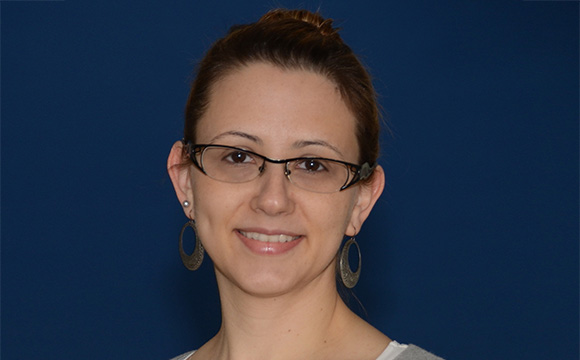A Word From Our Latest Visiting Ob/Gyn Fellow Dr. Liat Salzer

1. Provide an overview of your fellowship at your hospital and the role you played during your stay.
I spent two weeks in the human reproduction department at the Lenox-Hill Hospital of Hofstra’s North Shore-LIJ School of Medicine. During this time, I accompanied Dr. Tomer Singer and took part in the diverse and intensive clinical activities in the field of reproduction. The fellowship included academic lectures and clinical discussions in the OB/GYN ward of the hospital, clinic sessions, and operating room activities. I was also exposed to integrative imaging technologies and genetic technologies, which work in favor of reproductive medicine these days.
2. Describe how your fellowship opportunity has expanded your knowledge in your specific field.
This fellowship expanded my knowledge in the reproduction field, but most importantly, in the fields of genetics and reproduction. The clinic and the hospital use advanced genetic methods in order to increase healthy pregnancy rates. I was exposed to the process as a whole: the clinical appointments with the patient (some of which were very complex), the genetic process and reading the results, choosing the right embryo to put in the uterus, and the surveillance after an early pregnancy.
3. What did you enjoy most about your fellowship opportunity?
I particularly enjoyed seeing the integrative work done by Dr. Singer. Unlike most reproduction medicine practitioners in Israel, Dr. Singer is also conducts general surgery and ultrasound imaging modalities in the use of reproduction. I was also glad to be given the opportunity to take a deeper look into genetics as an option for future sub-specialty.
4. Do you feel international medical relationships and fellowship programs are vital to the future of medicine and research?
Just during my short period with Dr. Singer, we raised several interesting clinical ideas for new studies to be done cooperatively. We even started collecting data for one of them during my period there. In my opinion, these programs give a unique window of opportunity for future collaborations in terms of better clinical medicine and research. Different points of view can open one's mind to new studies in his/her origin country and can also encourage multicenter studies. I will definitely stay in touch with Dr. Singer for future tutoring and research.
5. Explain the major differences between the Israeli health care system and the United States private healthcare systems in terms of your specific field.
There are several differences that affect the general medical approach. First [in the United States], the different medical treatments offered to patients are based on their financial capabilities/insurance. Second, the availability of operating rooms is higher, and some of the lab work is also quicker than what I am used to in Israel. It is easier to follow a patient and treat efficiently. Finally, women are given more options to choose after they are given explanations that include the risks.
6. What do you feel are the key issues and challenges in your field - not only in the Unites States and Israel, but worldwide?
The key challenge for those in the field of Ob/Gyn, and reproduction specifically, is how to increase success rates in IVF to achieve live births and reduce the procedure’s risks. I believe that research in the evolving field of genetics of the mother and embryo can help with this challenge.
7. What are your future plans at Rabin Medical Center when you return to Israel?
I plan to finish my residency in Obstetrics and Gynecology in a year and a half. From there, I am considering a sub-specialty in medical genetics in order to integrate both. I also plan on continuing my academic cooperation with Dr. Singer.
8. Would you recommend this fellowship to your peers? Why or why not?
I would strongly recommend this fellowship to all of my colleagues. I am very glad to have been given the opportunity to experience different aspects of our specialty and to have been exposed to new imaging modalities and genetic methods. I feel that this time has given me a lot of motivation to explore how to practice better medicine in our evolving era. Furthermore, the chance to meet fellow doctors abroad can lead to great future collaborations.
SPECIAL THANK YOU TO THE AMERICAN FRIENDS OF RABIN MEDICAL CENTER AND SUPPORTERS OF THE RABIN MEDICAL EXCHANGE FELLOWSHIP PROGRAM.
Related Articles
Study at Rabin Medical Center On Induced Labor Shows No Harm to Mothers & Babies
Tel Aviv University study has determined that natural, spontaneous deliveries and induced deliveries following the rupture of the amniotic sac in the mother share similar neonatal outcomes, contradicting common wisdom.
Thank You From Our Latest Rabin Medical Exchange Fellow: Dr. Hagar Banai
I have recently finished my residency in Internal Medicine and will soon begin a second residency in Gastroenterology and Liver Diseases in Rabin Medical Center.
Stanford University Hosts Rabin Medical Exchange Fellow
A letter from Dr. Leor Perl 2013 recipient of the Abraham & Yvonne Cohen Cardiac & Medical Research Fellowship at Stanford University.